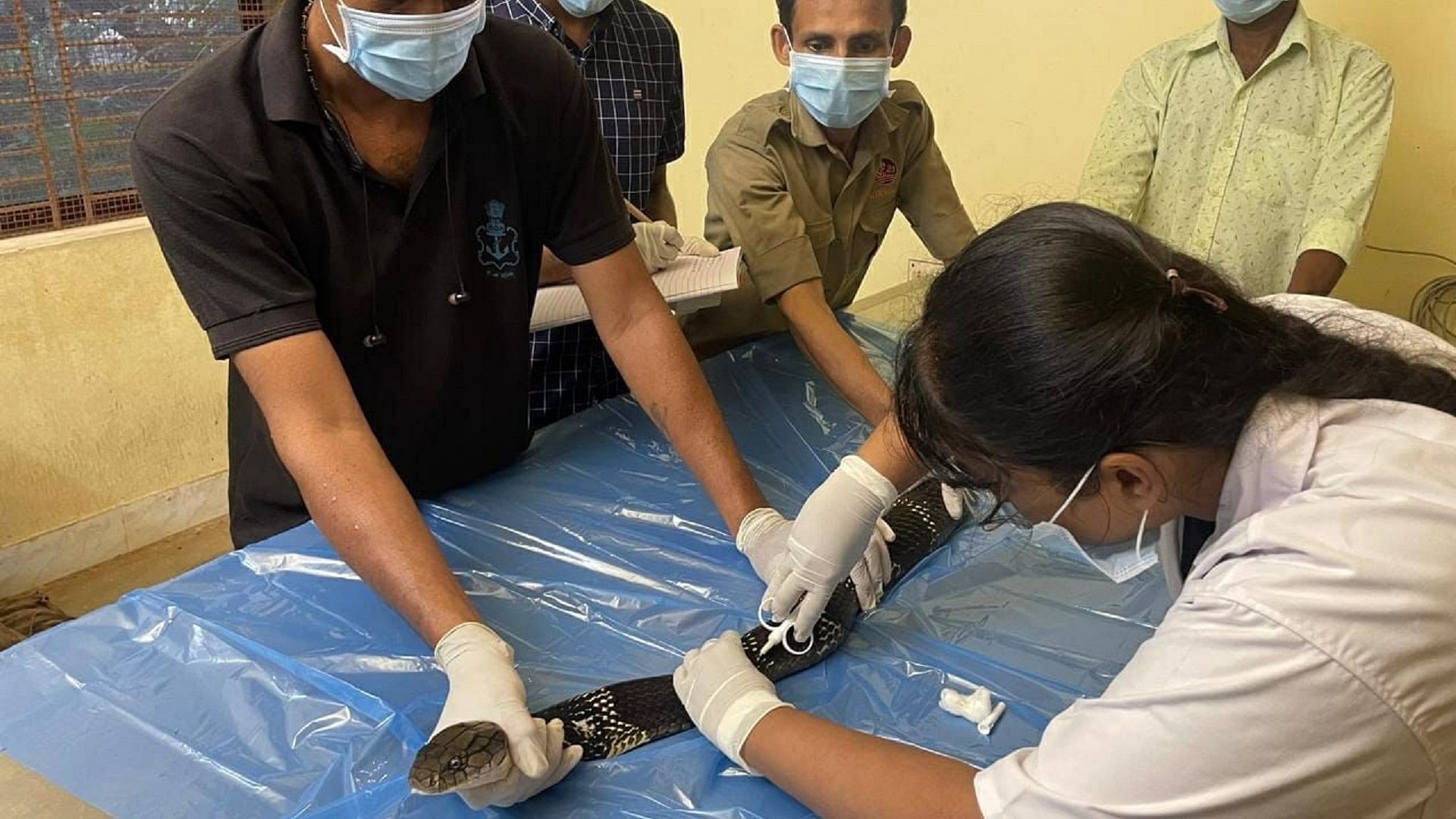
Veterinary doctor carrying out the process of implanting a microchip on a king cobra at Pilikula Biological Park.
Credit: Special arrangement
Mangaluru: Implanting of microchips in king cobras is taken up at Pilikula Biological Park, situated on the outskirts of Mangaluru.
Biological Park Director Jayaprakash Bhanadry said that since most of the animals of the same species look identical, microchipping is carried out to differentiate individuals easily. During the captive breeding programme to maintain the genetic lineage and to avoid inbreeding individual identification is important, he said.
Pilikula has undertaken captive conservation breeding of King Cobra and other animals. The main objectives of the zoo include conservation, education and scientific research of wild animals.
The zoo has also taken up the tagging procedures for the wild animals by implanting microchips. It is a tiny electronic device implanted under the subcutaneous layer of skin. Microchips has a separate receiver which consists of a hand held scanner. Individual names of the animal and transponder numbers are recorded in stud books, Bhanadry added.
Tagging with microchips to tigers, lions, and panthers will be taken up and the process of implanting microchips on the animals in the zoo will be completed within a month. The implanted microchips are imported.
The implanting of microchips will also be carried out on some of the selected species including stripped hyena, wild dog, Indian grey wolf, sloth bear and crocodiles like Gharial and Nile species.
During the process, identification of sex will be carried out using sex probing instruments along with recording accurate length and weight of the animal. For determining the sex in birds, DNA testing will be done. Scientific procedures of implanting microchips are done at the the veterinary hospital of the zoo and the implanted microchips last till life time, said the Director.
The Pilikula Biological Park is one of the major zoos in India with more than 1200 wild animals including mammals, birds and reptiles.